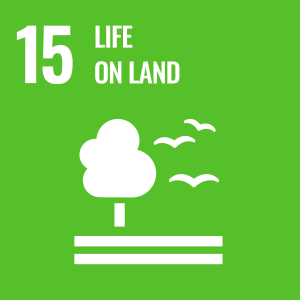Development of the Brazilian timber Due Diligence tool for timber importers

Project dates: 2015-2021
Funder/s: Good Energies Foundation, Climate and Land Use Alliance, DFID (FGMC Fund)
Initiative type/s: Tool, advocacy
The Problem
The illegal production and trade of tropical timber is one of the main drivers of environmental degradation worldwide, leading to loss of habitats and biodiversity, greenhouse gas (GHG) emissions, human rights abuses and corruption.
 While there is little quantitative data on the causal impact of illegal logging on GHG emissions and/or deforestation, it is recognised that the loss of value caused by degradation associated with illegal logging paves the way for forest conversion. Recognising the importance of this trend, the Brazilian Nationally Determined Contribution (NDC) states that the country intends to adopt measures to “enhance sustainable native forest management systems, through georeferencing and tracking systems applicable to native forest management with a view of curbing illegal and unsustainable practices”. Combating illegal logging is also one of the objectives of the Brazilian Coalition on Climate, Forests and Agriculture.
While there is little quantitative data on the causal impact of illegal logging on GHG emissions and/or deforestation, it is recognised that the loss of value caused by degradation associated with illegal logging paves the way for forest conversion. Recognising the importance of this trend, the Brazilian Nationally Determined Contribution (NDC) states that the country intends to adopt measures to “enhance sustainable native forest management systems, through georeferencing and tracking systems applicable to native forest management with a view of curbing illegal and unsustainable practices”. Combating illegal logging is also one of the objectives of the Brazilian Coalition on Climate, Forests and Agriculture.
To address the problem of illegal logging, governments of several consumer markets have introduced strict regulations requiring timber traders to ensure the legality of timber imports through due diligence procedures.
While Brazilian timber is deemed high risk in terms of illegality, there is also a lot of publicly accessible data within the country. What exactly was needed to meet timber import regulations, and how best to go about getting it, wasn’t always clear to importers however, which posed an opportunity.
BVRio’s solution
 Already involved in supporting the implementation of the Brazilian Forest Code, BVRio conducted an analysis on the use of Big Data to detect illegality in the tropical timber sector. The findings identified a range of sources which could, if used together, provide a complete picture of the supply chain for importers.
Already involved in supporting the implementation of the Brazilian Forest Code, BVRio conducted an analysis on the use of Big Data to detect illegality in the tropical timber sector. The findings identified a range of sources which could, if used together, provide a complete picture of the supply chain for importers.
In 2014 BVRio began a series of activities including the creation of a sophisticated, but simple to use, online Due Diligence tool able to map supply chains and to assess the risk of illegality at every stage. Not only would the tool help importers meet legislative requirements such as the EU Timber Regulations and the Lacey Act, but it would also reward legal logging activities by giving them access to international markets.
Due Diligence & Risk Assessment System for Brazilian timber
Due Diligence & Risk Assessment System uses large databases and satellite imagery to track environmental infractions, slave labour, illegal deforestation and tax non-compliance within Brazil.
- The system is updated on a daily basis, conducting over 2 billion data cross checks, and performs over 150 analysis per individual timber consignment. This allows real-time risk analysis of timber supply chains to take place and enables users to decide on every individual timber consignment that they acquire
- All findings are stored using modern block-chain technology
- Provides a risk rating and reports.
Protecting global forests
Between 2016 and 2021, working with local governments, a series of Practical Guides to Conducting Due Diligence of Tropical Timber products were produced for: Brazil, Peru, Ghana, Cameroon and Republic of Congo.
Spreading the word
Between 2014 and 2020 BVRio hosted and participated in events all over the world to promote timber legality and awareness in both producer and buyer countries, which included; Delivering presentations at 30 events in 13 different countries, including 8 international conferences, 5 trade fairs, 6 workshops and 3 global webinars Over 440 timber professionals were directly involved in BVRio’s hosted events Over 18 international timber trade associations were engaged in the campaign. We also produced 10 publications, translated in multiple languages, and produced many opinion, news and information articles resulting in media coverage around the world.
 Impact
Impact
BVRio’s efforts to support worldwide legal timber trading have resulted in wide-reaching positive impacts for the environment: Our Brazilian Due Diligence tool has over 500 active users and over 20,000 due diligence reports have been produced.
Legacy and Future
In 2021 it was widely reported that deforestation within Brazil was at an all-time high, showing there is clearly a lot of work still to do, and so this sector remains a core part of BVRio’s strategic work. Both the Responsible Timber Exchange and Brazilian timber Due Diligence tool remain in operation, managed by BVRio. Building on the experience and knowledge of producing these tools, BVRio has been researching and exploring possible tools for conducting due diligence of other commodities such as cocoa and soy, and is now seeking funding and partners to develop and prove these concepts further.
SDG alignment



Publications

Practical Guides to Conducting Due Diligence of Tropical Timber Products;
Using Big Data to Detect Illegality in the Tropical Timber Sector







